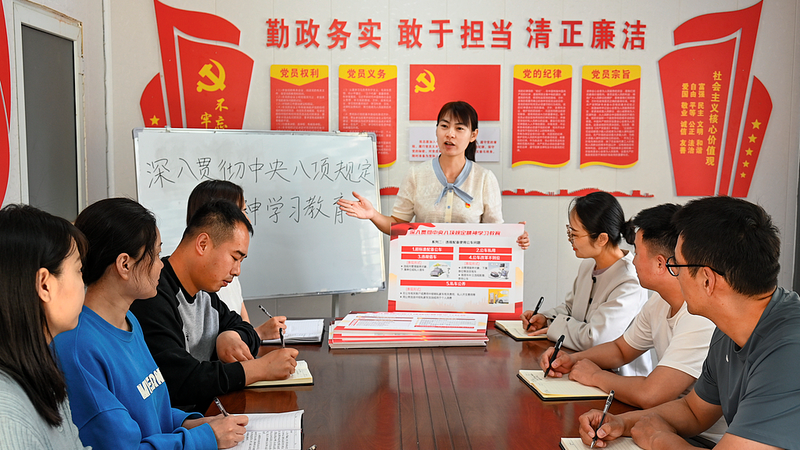Decoding the Eight-Point Rules
On December 4, 2012, less than a month after the 18th CPC National Congress, Chinese President Xi Jinping and the Political Bureau adopted the eight-point rules to improve work style and reconnect with the public. In just over 600 words, these rules set strict standards for how officials investigate, meet, report and spend.
Key focus areas include:
- Improving investigation and research
- Streamlining meetings and activities
- Simplifying documents and briefings
- Regulating official visits
- Minimizing security protocols
- Enhancing news reporting
- Strictly managing publications
- Practicing thrift
Strengthening Party Cohesion and Integrity
Politically, the eight-point rules curbed corruption and reinforced Party purity. A 2024 National Bureau of Statistics survey found 94.9% public satisfaction with these reforms. Xi Jinping led by example—during a 2012 inspection tour in Fuping, Hebei Province, he and other officials dined at a budget hotel, ordering four dishes and one soup without alcohol. "Ten people at one table, and they finished everything," recalls Jia Chunhong, then head of the hotel’s catering department.
In 2024 alone, disciplinary agencies investigated 596,000 cases of misconduct, disciplined 462,000 individuals and transferred 15,000 cases to prosecutors. Grassroots oversight also intensified: 89,000 township-level officials and 77,000 village-level leaders faced probes, fostering a healthier political ecosystem and boosting long-term governance capacity.
Improving the Business Environment
Economically, the rules transformed the use of public funds and reshaped government-business relations. The 2013 national "Clean Your Plate" initiative promoted smaller portions and reduced food waste, while strict limits on lavish banquets and official vehicle use cut expenses and encouraged greener practices.
Beijing Yan, once reliant on official clients for 90% of its revenue, pivoted to private events after the rules took effect. "Today, more than 60 percent of our revenue comes from private events," says general manager Yang Xiulong. Savings redirected to education, healthcare and technology, combined with clearer boundaries between officials and entrepreneurs, reduced transactional costs and promoted fair competition.
Looking Ahead
After more than a decade of consistent effort, the eight-point rules have reshaped both governance and the economy, laying the groundwork for sustained, high-quality development.
Reference(s):
How China's eight-point rules reshape the Party and the country
cgtn.com




